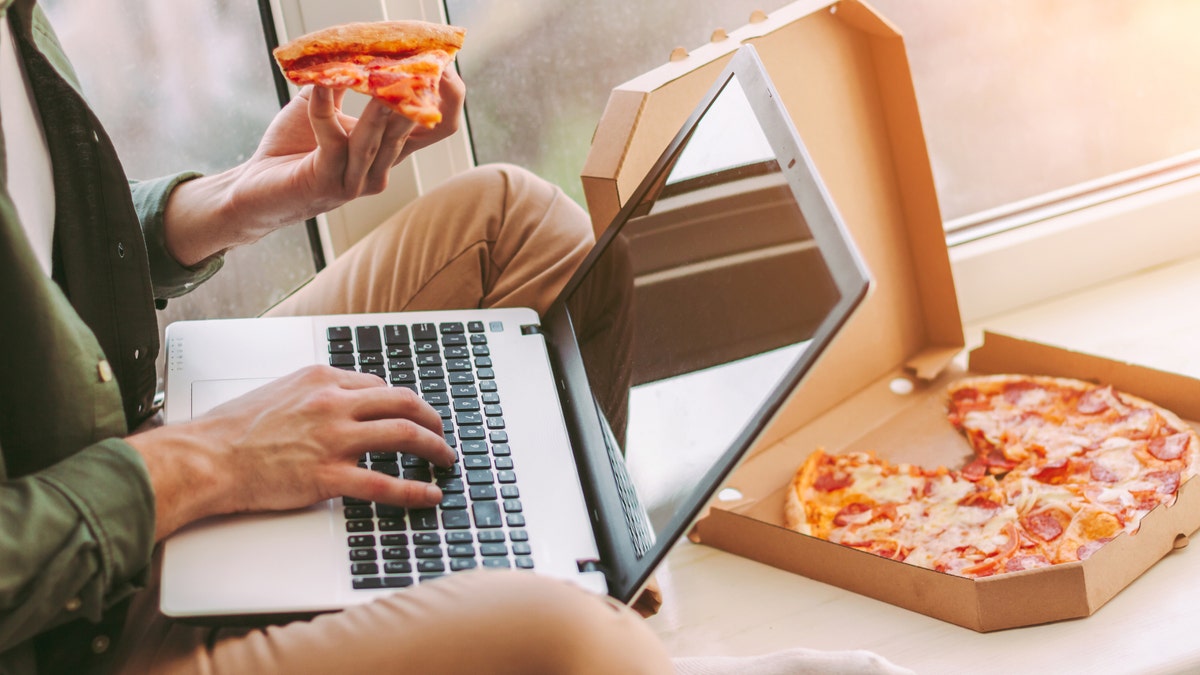Working from home amid coronavirus outbreak: How parents can balance work and family
With many parents having to work from home in the midst of a virus outbreak, it becomes increasingly difficult to give adequate time to both your work and your children. Here are some tips from Dr. Jennifer Dragonette, PsyD, on how to balance work and family life amid the COVID-19 pandemic.
Your home is your castle – and also your office, kid's school, gym and place to unwind during the coronavirus pandemic.
One year after the global outbreak of COVID-19 was declared a pandemic and sent millions indoors, a new study found that many feel home isn’t quite the haven it used to be after morphing into a multipurpose space.
In a new study of 2,000 employed adults, 42% said that their house doesn’t feel like a "home" these days while doing everything under one roof, like taking virtual work calls (44%) and exercising (40%) in the same place, South West News Service (SWNS) reports.

For those who have marked a focused workspace, 39% share it with their partner, and 28% with their kids. (iStock)
The survey, conducted by belVita and Onepoll, even found that 28% of participants have yet to set up a dedicated workspace, instead floating around the house through the day. For those who have marked a focused workspace, 39% share it with their partner, and 28% with their kids.
When it’s time to get the job done, participants said they’re mostly working from a dining table (39%) or couch (36%,) while just 31% have a specific home office area.
With that being said, it’s no surprise that 26% feel it’s more hard to separate work and leisure time since the pandemic began.

When it’s time to get the job done, participants said they’re mostly working from a dining table (39%) or couch (36%,) while just 31% have a specific home office area. (iStock)
FOLLOW US ON FACEBOOK FOR MORE FOX LIFESTYLE NEWS
To that end, neuroscientist Dr. Jack Lewis urged the importance of taking quick breaks to relax and walk away, in order to set productive boundaries.
"Five minutes may not feel like a lot but can often be all our brains need, if we do it right," he said. "Whether it is resetting and coming back to a task, switching from work mode to parent mode, or simply cooling off after a day, there are easy things we can do to train ourselves in just five minutes."
CLICK HERE FOR FOX NEWS' CONTINUING CORONAVIRUS COVERAGE
If possible, Lewis suggested creating a "recharge retreat," a screen-free space that is physically separated from where you work, and treat it as a sanctuary to psychologically distance from the daily grind.
"Consistency is key. We want to help our brain to get the message as quickly as possible that it’s ok to switch off from what you were just doing," he said of the benefit.
"We do this by engaging our hippocampus, the parts of our brain that helps us to recall and create memories and helps us know where we are. The more consistent our space to recharge, the quicker our brains react, and then relax
for us".
